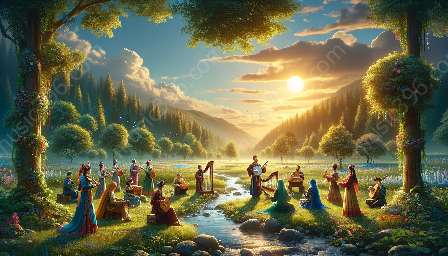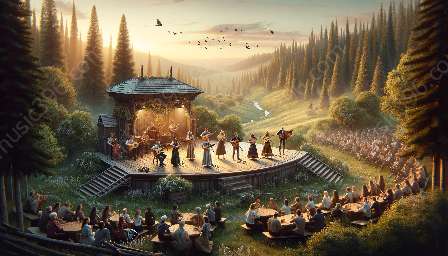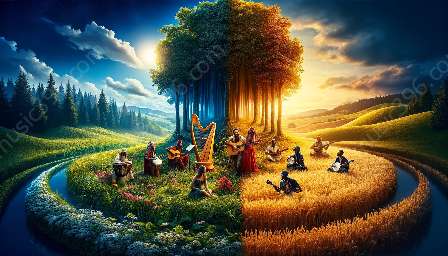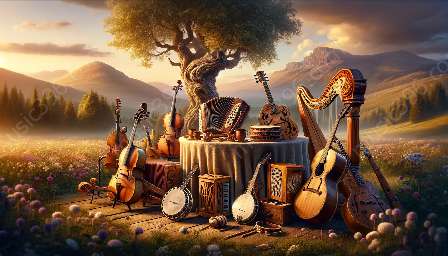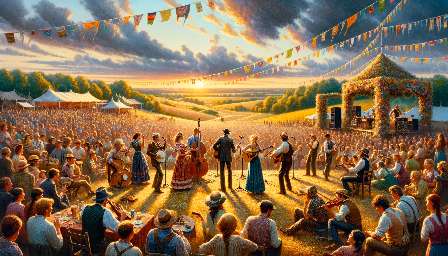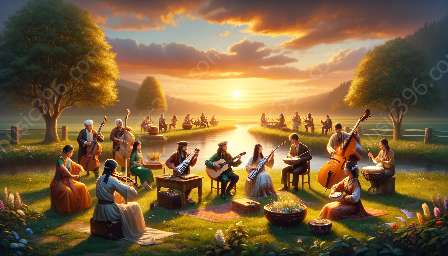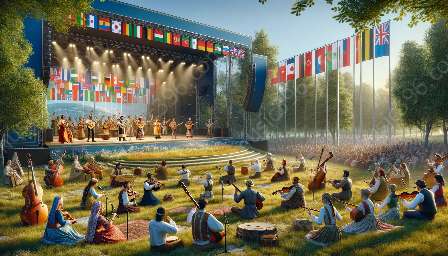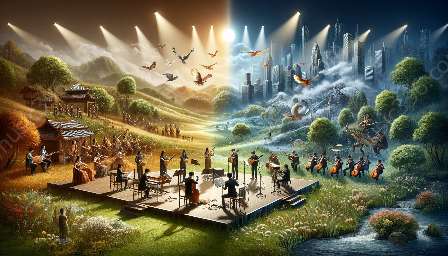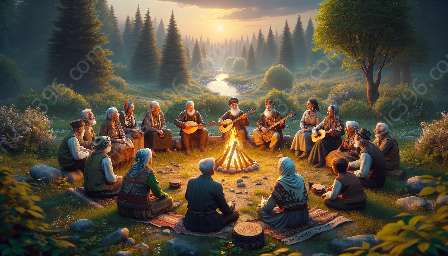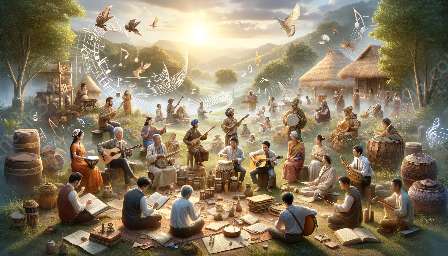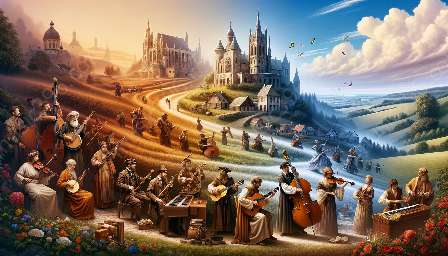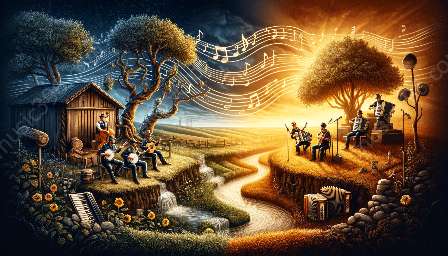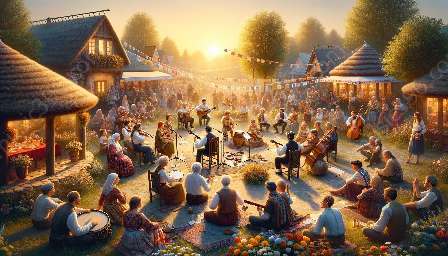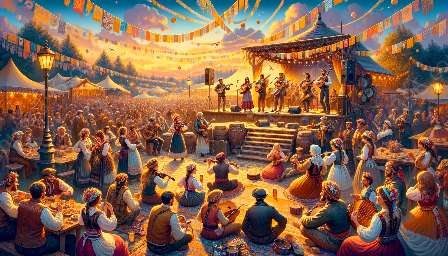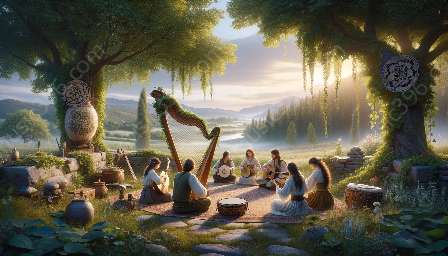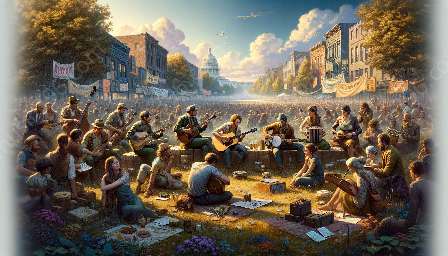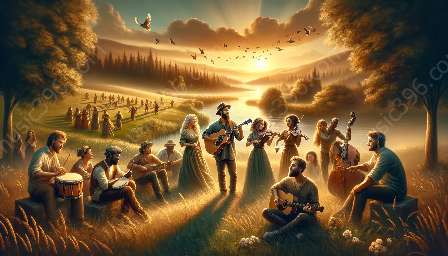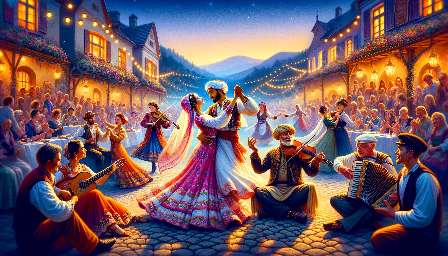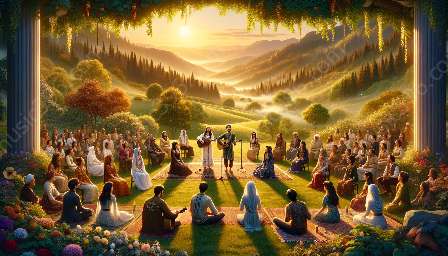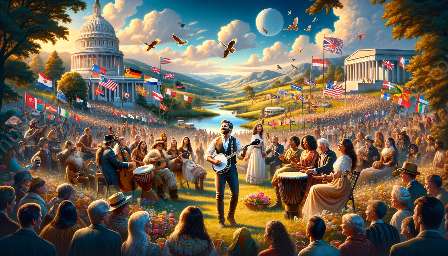Folk music is deeply intertwined with cultural rituals and ceremonies, reflecting the traditions and beliefs of diverse communities around the world. This topic cluster will explore the ethnomusicological aspects of folk and traditional music, shedding light on the rich tapestry of rituals and ceremonies associated with these musical traditions.
Understanding Ethnomusicology
Ethnomusicology is the study of music within its cultural context, encompassing both the music itself and the social, cultural, and historical factors that shape it. When applied to traditional folk music, ethnomusicology helps us understand the significance of rituals and ceremonies associated with these musical traditions.
Role of Rituals and Ceremonies
Rituals and ceremonies are integral to traditional folk music, serving as occasions for communities to come together, celebrate, mourn, and express their cultural identity. These rituals often mark important milestones such as births, weddings, harvest festivals, and funerals, providing a musical backdrop to the events that shape the lives of individuals and communities.
Diversity of Traditions
Across different cultures, the rituals and ceremonies associated with folk music vary widely, reflecting the unique customs and beliefs of each community. From the lively dance tunes of Celtic ceilidhs to the soulful lamentations of Balkan funerals, traditional folk music encompasses a diverse range of rituals and ceremonies that showcase the depth and richness of human experience.
Key Rituals and Ceremonies
Let's delve into some of the key rituals and ceremonies associated with traditional folk music:
1. Weddings
Weddings are significant events in many cultures, and traditional folk music often plays a central role in these celebrations. From lively processional tunes to romantic ballads, wedding music reflects the joy and love shared by the newlyweds and their community.
2. Harvest Festivals
In agricultural societies, harvest festivals are marked with music and dance, celebrating the fruits of labor and the abundance of the land. These rituals often embody hopes for a bountiful harvest and thanksgiving for the gifts of nature.
3. Funerals and Mourning
Traditional folk music also accompanies funeral processions and mourning rituals, providing solace and a means of expressing grief and remembrance. Funeral music can range from somber dirges to uplifting hymns, reflecting the cultural attitudes towards death and the afterlife.
4. Coming-of-Age Rites
Many cultures mark the transition from adolescence to adulthood with special ceremonies, often accompanied by traditional folk music. These rituals serve to initiate young individuals into the responsibilities and privileges of adulthood, with music playing a transformative role.
Preservation and Revival
As cultures evolve, the preservation and revival of traditional folk music and its associated rituals become crucial in maintaining cultural heritage. Ethnomusicologists and musicians alike work to document, study, and revitalize these musical traditions, ensuring that rituals and ceremonies continue to hold significance for future generations.
In Conclusion
In conclusion, the rituals and ceremonies associated with traditional folk music provide a window into the cultural, social, and religious aspects of diverse communities. Through the lens of ethnomusicology, we can appreciate the depth and diversity of these musical traditions, recognizing the integral role they play in shaping the identity and experiences of people around the world.

